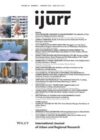With this study we join the conversation on housing aspirations from a Brazilian perspective, which is marked by coexisting formal and informal markets, investigating how market-driven narratives and socioeconomic factors shape these aspirations across generations in urban areas. We surveyed middle-class individuals and applied exploratory factor analysis alongside intergenerational comparisons, and our findings reveal that, despite the growing prevalence of renting as a response to market constraints, homeownership persists as a predominant aspiration, particularly for long-term security. The concept of aspirational postponement emerges as a key framework, illustrating how temporary adaptations to renting do not supplant the enduring desire for property ownership. Moreover, this research introduces the experience effect, wherein older generations recognize the practical advantages of apartments over houses, based on lived housing arrangements, and the adjustment effect, which reflects the tempering of idealistic aspirations among younger generations owing to financial and practical constraints. By situating Brazilian housing dynamics within a global context, we highlight the interplay of structural inequalities, cultural norms and generational preferences to offer perspectives for housing policy frameworks in developing economies.
Details
Written by:
Rafael Kalinoski, Mario Prokopiuk
Digital Object Identifier (DOI)
https://doi.org/10.1111/1468-2427.70007
About DOI
